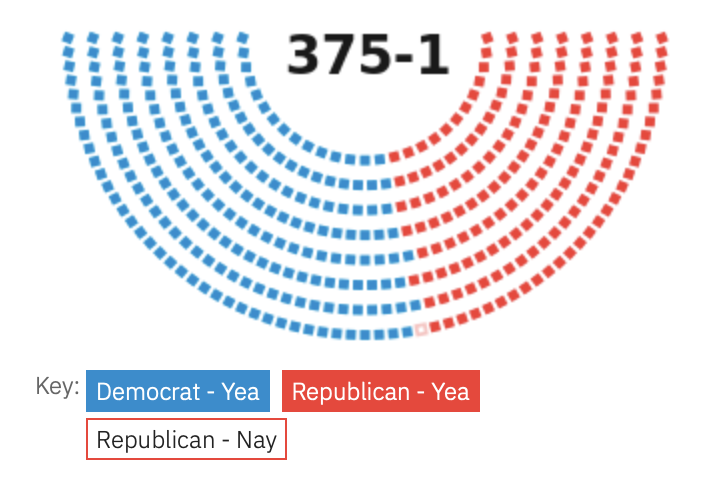
You’re an obstructionist! No, you are!
The majority party in the US Congress always accuses the minority party of gridlock and obstruction. Bills fail to pass if the majority party can’t get everyone in line and the minority party votes strongly against something. Instead of blaming themselves for not being able to persuade their OWN party to vote with them, they blame the other party.

I looked at the votes for some of the historically significant bills in the past 60 years. Using this excellent site called GovTrack, you can see the progress of every bill proposed in Congress with amazing detail. This information is already public, but this site presents everything in a clear and very visual manner.
This is not particularly scientific as the sample size is small and I randomly picked some votes to look at. I didn’t know (or remember) the votes before I looked them up, so I did find some interesting things that I’ll mention in the conclusion.
Note: I focused on voting in the Senate for simplicity but sometimes used a House vote in cases where only a voice vote was done in the Senate.
Tax cuts
H.R. 1: Tax Cuts and Jobs Act (2017)
This was the major tax reform signed by Trump. Since it passed, no one got blamed for gridlock. But if a couple more Republicans weren’t on board, it would’ve failed and the Democrats would’ve been accused of obstruction.
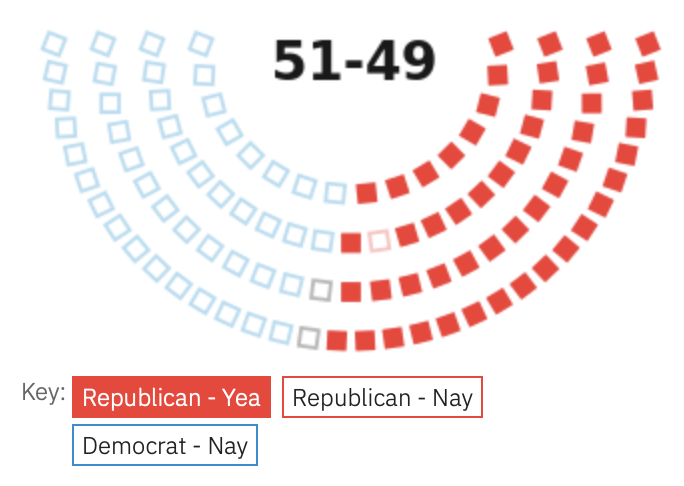
H.R. 4242: Economic Recovery Tax Act (1981)
Reagan signed a similar (in size) tax reform. This one passed by voice vote in the Senate, so here’s the House vote. Both parties were needed to pass it as a strict party vote would’ve failed.
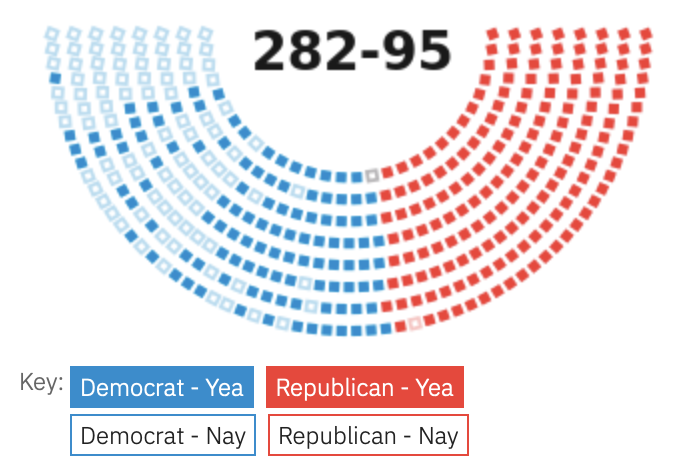
Economic emergency
H.R. 1319: American Rescue Plan Act (2021)
This is the COVID relief package. The black squares are independents that were needed to pass, but pretty much a party-line vote.
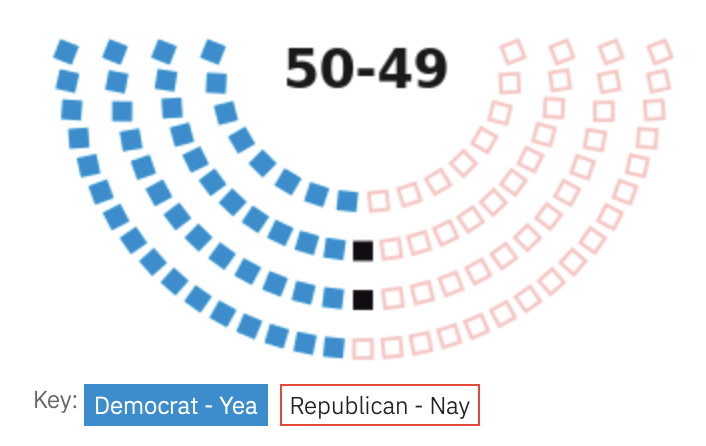
H.R. 1424: Emergency Economic Stabilization Act (2008)
This was the giant bank bailout bill. Even though it was only 14 years ago, this type of mixed voting seems more common in the past.
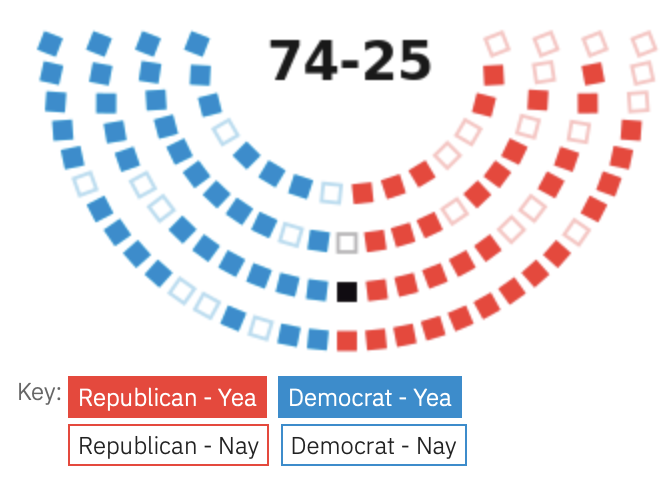
Historical votes
It’s interesting to look at some of the historical, iconic bills that were passed. There were definitely a lot of surprises. More proof that the current mantras “Democrat good, Republican bad” (and vice-versa) were quite different in the past.
H.R. 7152: Civil Rights Act (1964)
A higher proportion of Democrats voted against this than Republicans. With Democrats in firm control of the Senate, they still needed help across the aisle.
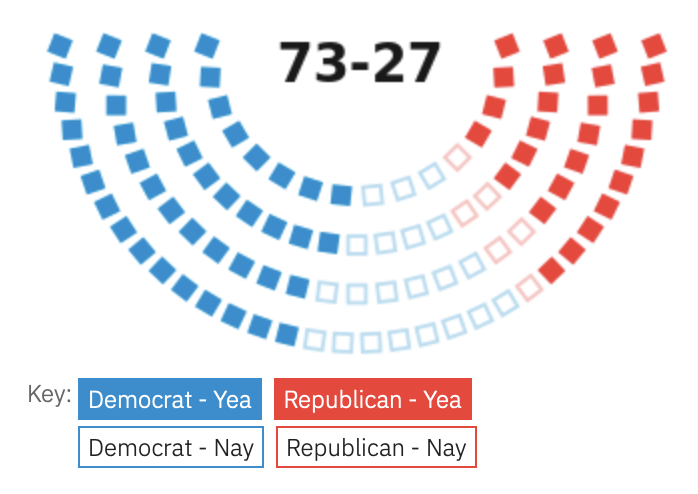
S. 1564: The Voting Rights Act (1965)
Given this bill passed around the same time, it’s not surprising the vote was similar. Given it did not get a majority with Democrat votes alone, it also needed bi-partisan support.
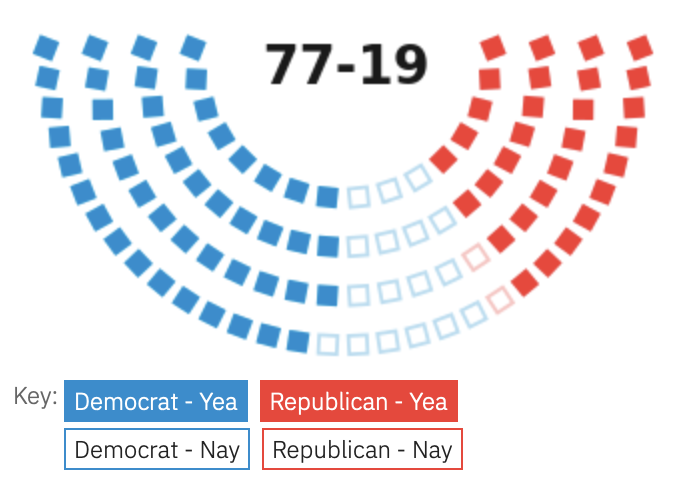
H.R. 6675: The Social Security Amendments (1965)
This was the bill that created Medicare and Medicaid. Did not need Republican votes, but about half of them supported it.
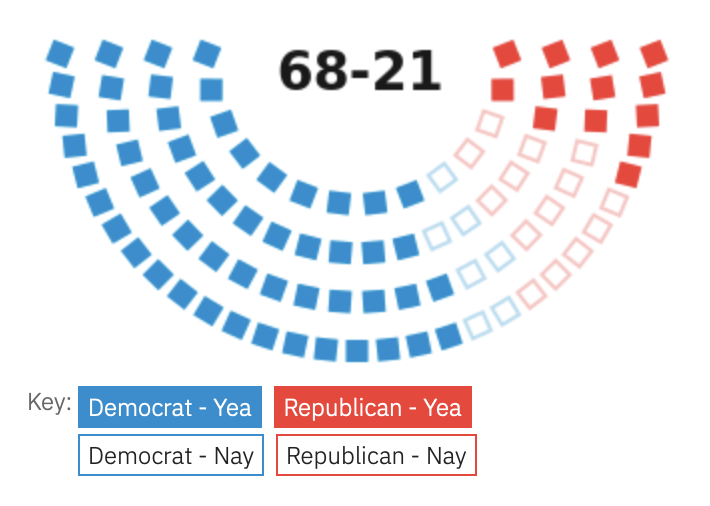
H.R. 2580: Immigration and Nationality Act (1965)
This was a landmark bill that ended the system that was based entirely on ethnic origins. Similar to the previous one, bi-partisan support wasn’t needed, but can you imagine the vote being like this today?
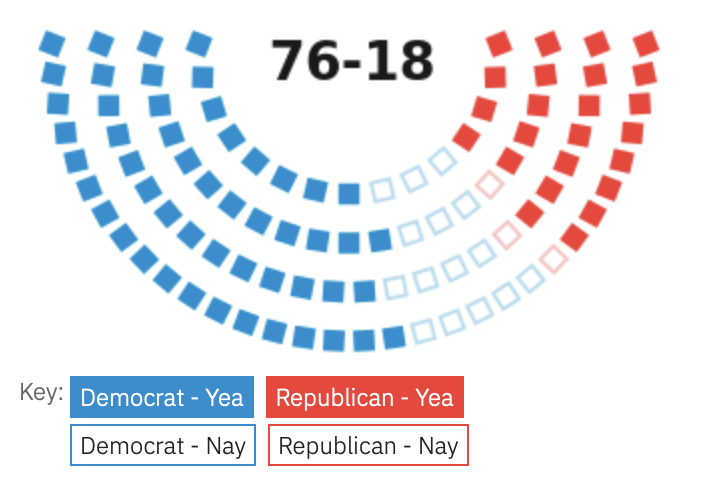
H.R. 17255: Amendments to the Clean Air Act (1970)
These amendments are significant enough that when you say “Clean Air Act”, this bill is what is being referenced. The House vote is shown below. Almost unanimous. Really?

H.R. Patriot Act (2001)
Sometimes gridlock can be a good thing! Thanks, Russ Feingold (D-WI), for voting against it.
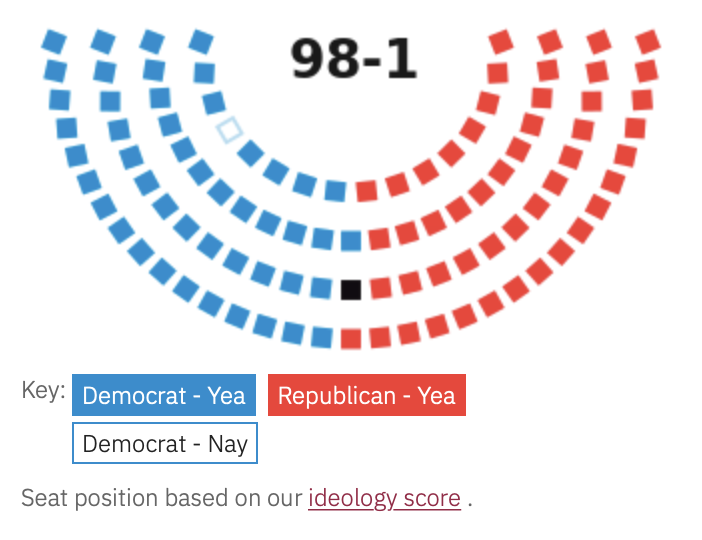
H.R. Violent Crime Control and Law Enforcement Act (1993)
Another bill that needed some gridlock,but did include an assault weapons ban which may have been effective. We’re still trying to undo the rest of this “tough on crime” bill.
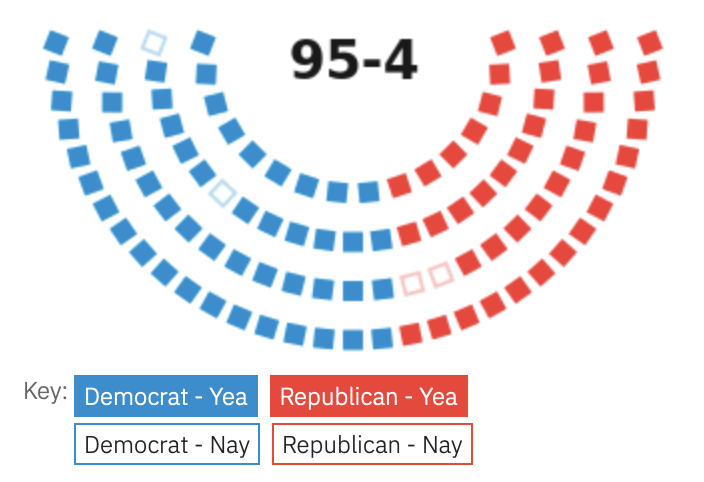
S. 900 Financial Services Modernization Act (2008)
This bill is blamed for causing the financial meltdown in 2008, but there is a lot of disagreement from all quarters. In any event, this looks a lot more partisan like the modern-day votes I showed at the beginning. But the punchline? Bill Clinton signed it. Any ideas?
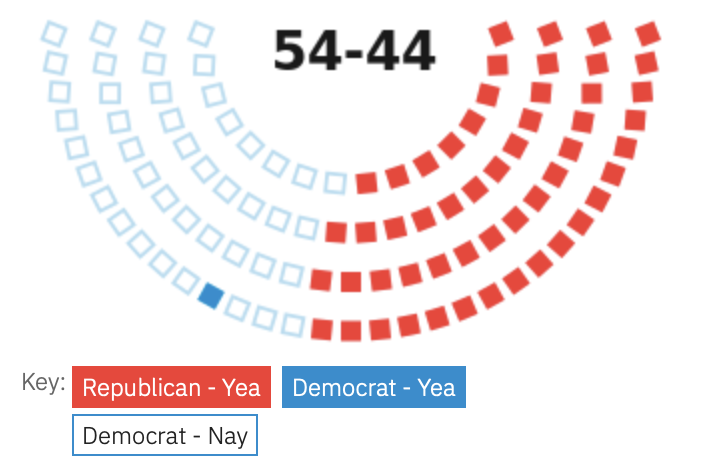
Conclusion
Well, I think one easy conclusion is that any party calling another “obstructionist” is pretty hypocritical as both have exhibited behavior that could be interepreted that way
Again, the sample size is small, but there seem to be less voting on party lines in the past, even on very contentious issues like voting rights, civil rights, the environment, and immigration. I couldn’t imagine bi-partisan support on any of these issues anymore. To see support from Republicans that was far greater than that of Democrats on some of these issues would probably surprise a lot of people that grew up with the party of today.
There are other reasons the voting could be more split than it was in the past. Bills could be becoming more partisan. A more moderate bill might lose some more extreme members in a party but pick up a few moderates from the opposing party. A more extreme bill may need a few votes from the other party as it may have turned off more moderate members. If the other side doesn’t oblige, they get labelled obstructionists.
The parties are definitely a lot more partisan and intolerant of members that don’t toe the party line. I’m amid a biography of John Anderson, one of the highest-ranking Republican members of the House in the 60s and 70s, who eventually left the party. Despite vociferous opposition to Nixon and the Vietnam War, while being a strong supporter of gay rights, women’s rights, and abortion rights, he was allowed to remain in leadership. He was straddling the period between the old and new Republican Party.
Not a chance of that happening today as not falling in line is severely punished. Just ask Joe Manchin. You Are Either With Us or Against Us is a rallying cry for both parties nowadays.
